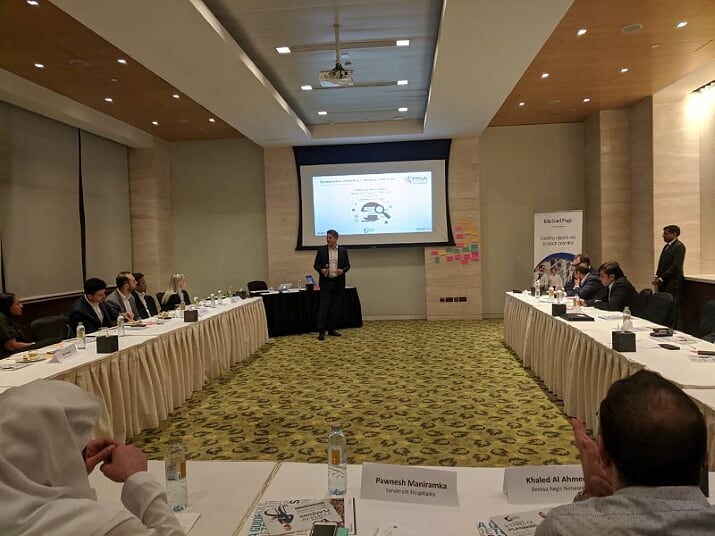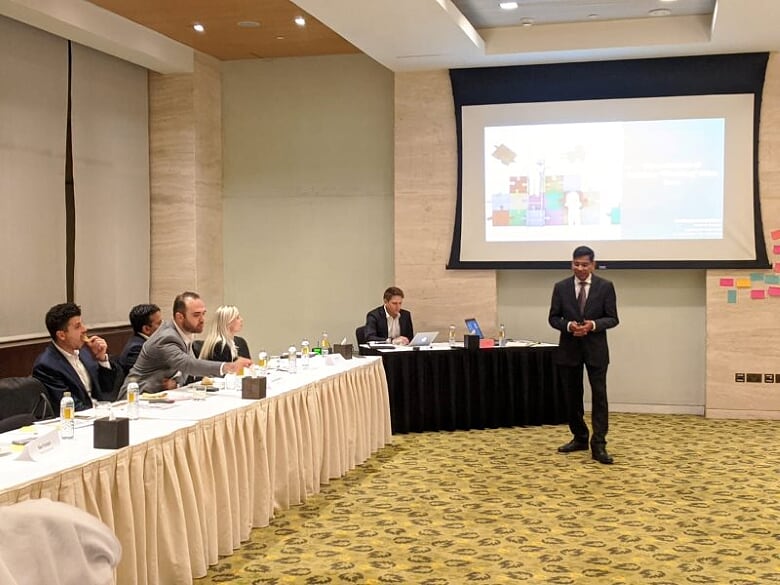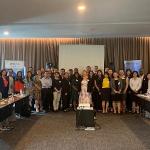 In February 2020, the Dubai FP&A Board gathered for the 7th time to discuss the subject of "Building Winning Financial Planning and Analysis (FP&A) Teams". Lukas Herbert, FP&A Director at Takeda Pharmaceuticals, facilitated the meeting. The event was sponsored by Jedox, Michael Page and Azdan.
In February 2020, the Dubai FP&A Board gathered for the 7th time to discuss the subject of "Building Winning Financial Planning and Analysis (FP&A) Teams". Lukas Herbert, FP&A Director at Takeda Pharmaceuticals, facilitated the meeting. The event was sponsored by Jedox, Michael Page and Azdan.
What are the key features of a successful FP&A Professional?
The session began with a quick question to every participant regarding the most important attribute of an FP&A professional. The outcome was very interesting as almost everyone mentioned a soft skill than a technical one - be it curiosity, storytelling, influencing, agility or continuous improvement.
The discussion regarding FP&A Team Building, roles and synergies was then initiated by recapping the 5 critical FP&A team roles - the Architect, the Data Scientist, the Analyst, the Storyteller and the Influencer. It was mentioned that all these roles are not possible to find in one person, therefore, a team should be built.
Accountants vs FP&A
The participants discussed their experiences and views regarding building FP&A teams. Interesting perspectives emerged around whether the traditional path of most of today's FP&A professionals (from accountant / audit backgrounds) was still relevant or would there be better-suited professionals to tap into while hiring FP&A resources.
One view seemed to be that accountants can be too rigid, arrogant or lacking understanding of data analytics or technological systems making them less suited to be FP&A professionals. In the earlier days of FP&A, the main responsibilities of FP&A teams used to be around ensuring data collection, accuracy and integrity. However, with today's evolved systems, shared service environments, expectations from FP&A teams have evolved towards more strategic business partnering. Engineers or commercial professionals seem to be able to handle this better than traditional accountants. The counter view remains that in order to effectively analyze numbers and identify the story behind them, a deep knowledge of accounting is a pre-requisite.
The ideal FP&A candidate fit seems to be a candidate who has not only a firm knowledge of accounting and comfort with numbers but also a good business understanding and story-telling and influencing skillset. A suggestion to develop these capabilities emerged as being rotations into business roles for FP&A professionals. Establishing credibility also emerged as a key prerequisite for an FP&A team to exert greater influence on business decision making.

Case Studies and Insights
The session ended with two real-life case studies being presented by senior finance leaders, Pawnesh Maniramka and Anand Soni on their personal experiences of building successful FP&A teams in their organizations. Key takeaways were discussed by the participants and the session was thus concluded.







